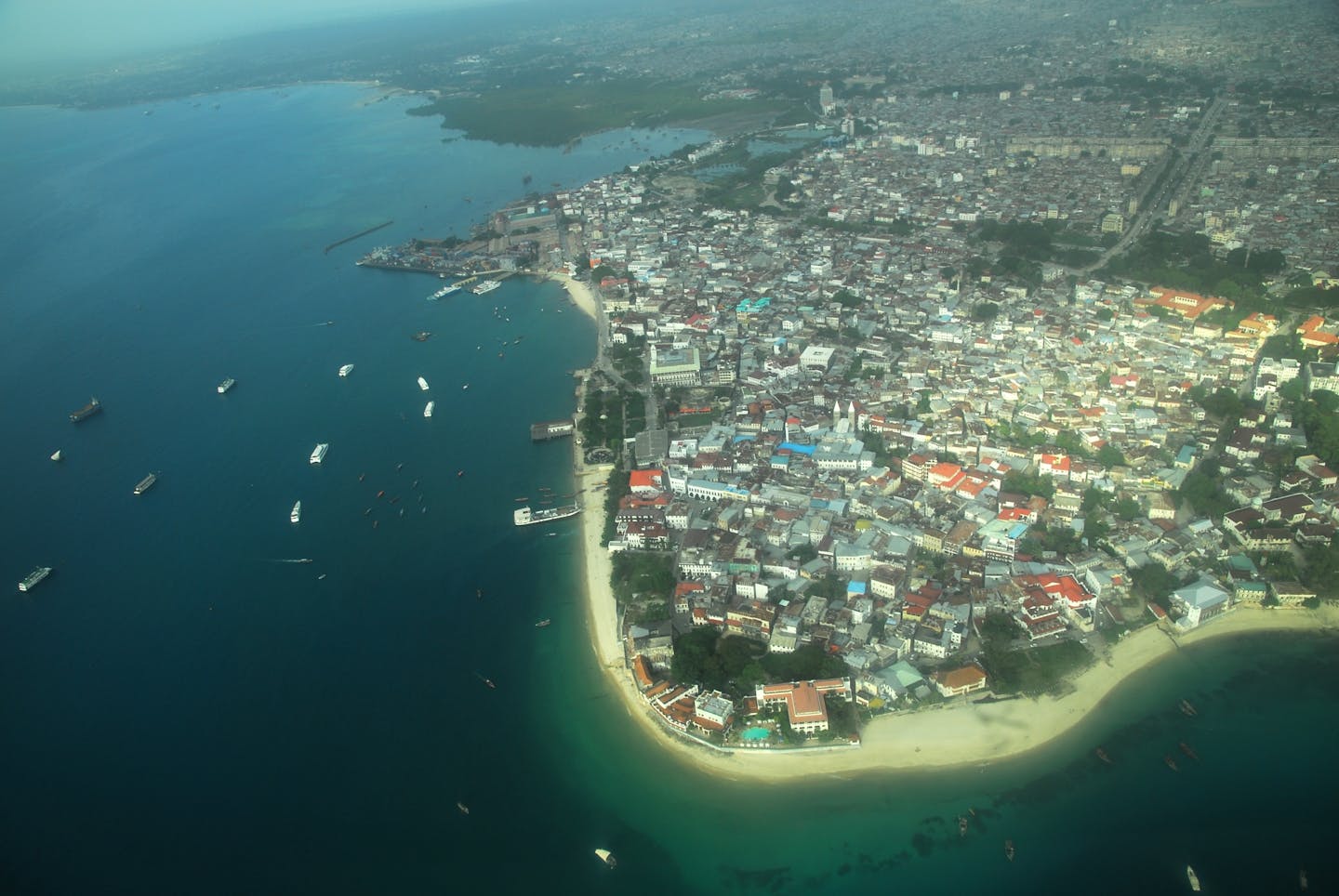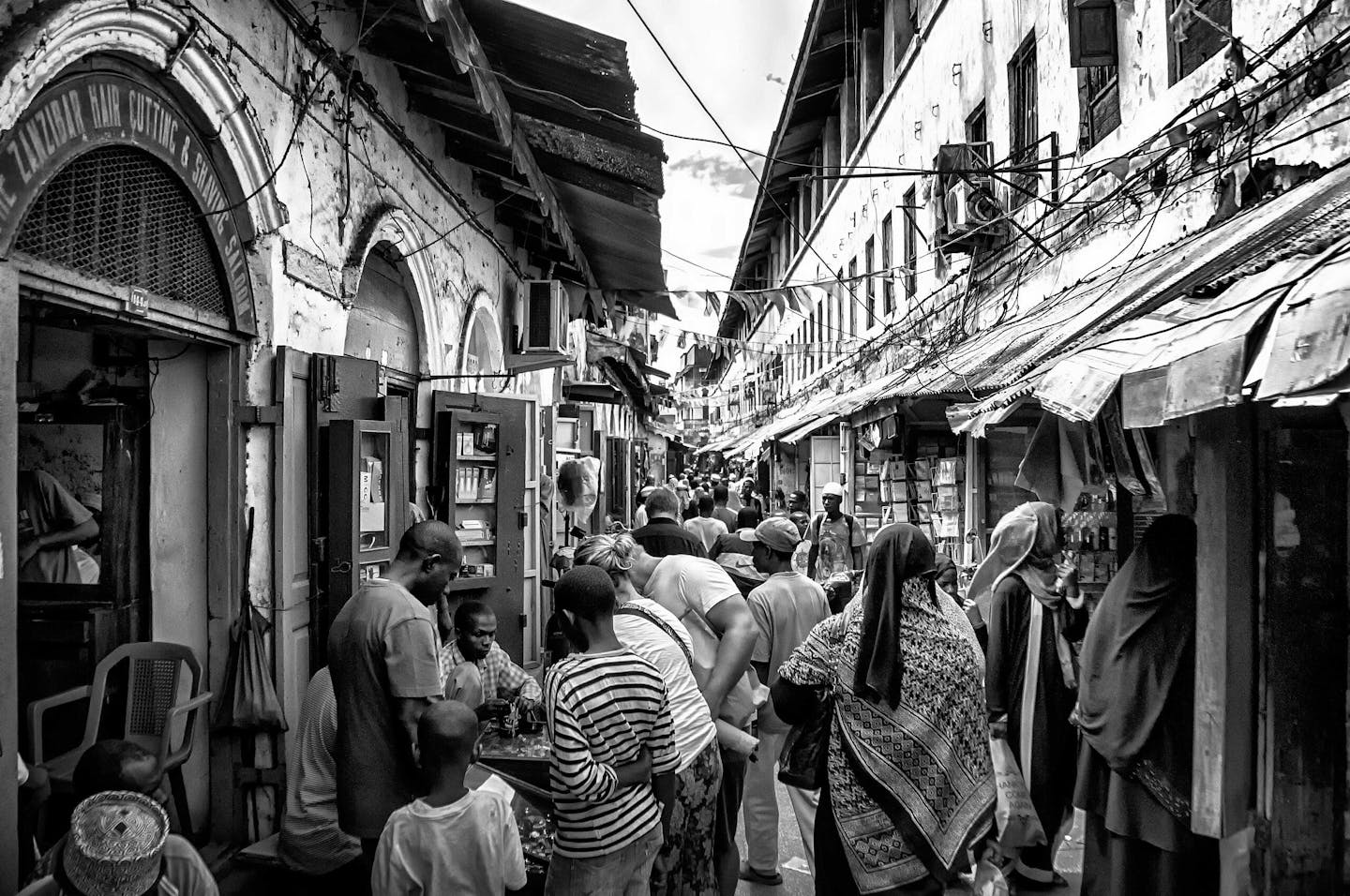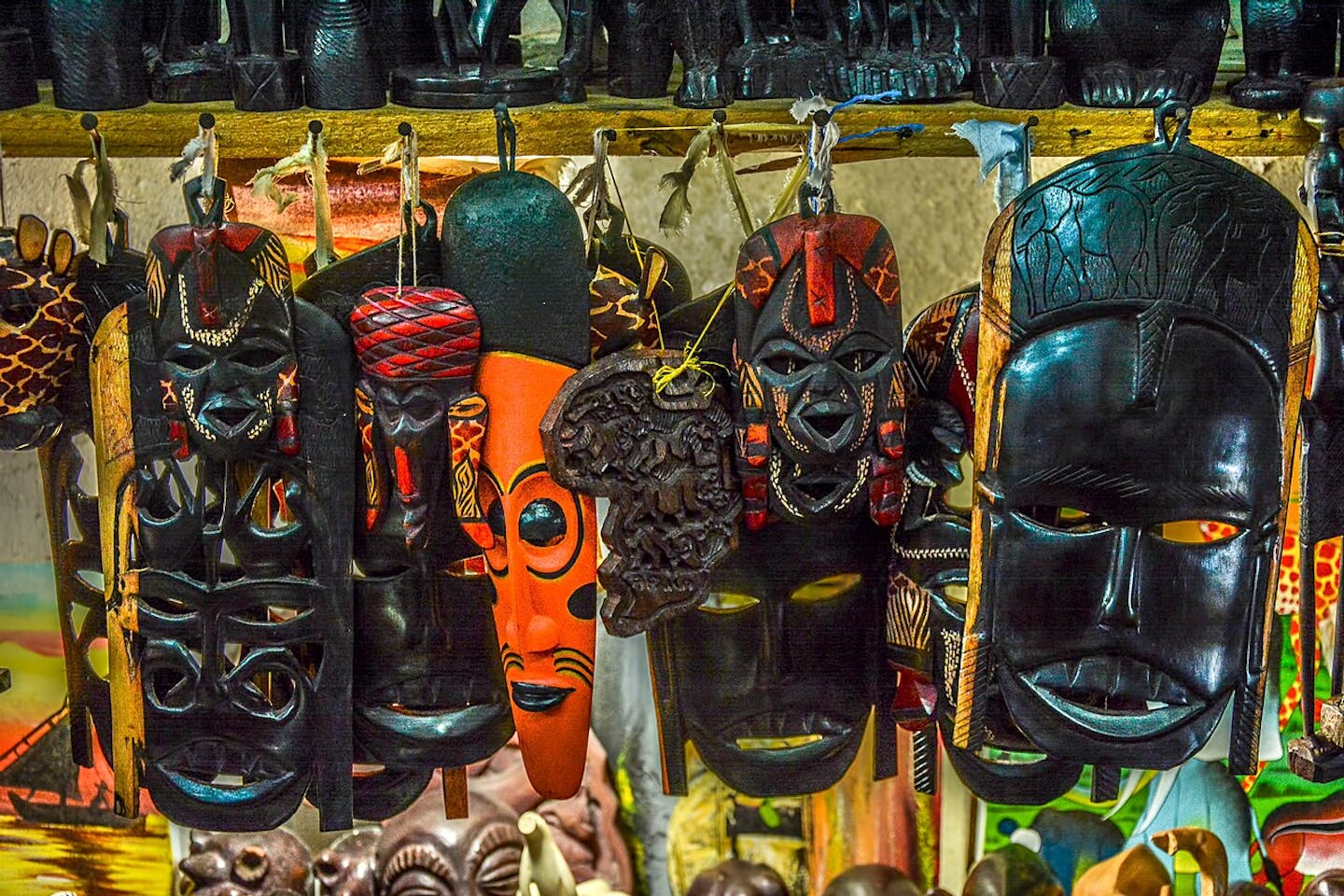
Zanzibar has long been an island of arrivals for traders, sailors, slaves and, more recently, waves of tourists. I arrived as a wedding guest and a reader of the Zanzibar born novelist Abdulrazak Gurnah, in search of the literary and emotional landscapes that shape his fiction. For a week, I was part of the tourist economy of this east African island, passively complicit in its curated pleasures.
For all its beautiful images on social media, Zanzibar is a site of difficult memory. It was once a central node in the Indian Ocean slave trade, so its past is carved into the coral-stone buildings that reflect a complex fusion of Swahili, Indian, Arab and European influences in architecture and town planning.

A visit to the Old Slave Market was sobering. You cannot look away once you’ve seen it. And yet, Zanzibar is now overlaid with carefully packaged experiences: boutique hotels with infinity pools, beach picnics with imported champagne, stalls of “African” art mass-produced for western eyes. The art has become so generic that it hurts. All the curio markets on the island look the same.
Even the language has been commodified. Everyone is selling something. Everyone is searching. “Jambo,” (Hello) say mostly young men offering one service or another. “Hakuna matata.” (No worries.) “Pole pole.” (No rush.) These cheerful Kiswahili phrases made famous by the likes of the Lion King movie are repeated like slogans and feel soulless.
Most of the cars on the roads operate as taxis with stickers that say: Private Hire. The tuk tuks, three-wheeled tricycles, weave in and out of traffic because movement is an act of constant negotiation, part of a tourist infrastructure that operates as a regulated service.

Amid the hum of engines and the ceaseless choreography of traffic, I kept searching not just for respite from the heat or wifi or good coffee, but for something literary. I was looking for the celebrated writer Abdulrazak Gurnah. Not the man (he hasn’t lived in Zanzibar for decades), but the essence of his writing, informed by this place: the ache of exile, the weight of history, the restless question of belonging he grapples with.
Gurnah is not just a writer I’ve read; he examined my doctoral dissertation at the University of Kent, where he taught for many years until his retirement. He is an important part of my intellectual development.
As a scholar of African literature, I engage deeply with the traditions, debates and histories that Gurnah’s novels illuminate, so my attempt to map his legacy in Zanzibar carried both personal and professional significance.
Absence of literary memory
Gurnah was born here, on this island of contradictions. He left following the Zanzibar Revolution of 1964, a violent outbreak of anti-Arab violence in postcolonial Africa. He was a teenager when he moved to England as a refugee, and has lived there ever since.
I expected, perhaps foolishly, to see a plaque with his name. A mural. Something. But there was nothing, even in Stone Town, where the past feels pressed into every narrow alley. This historical capital is an indecipherable tangle of markets, bathhouses, former colonial offices and palaces. I asked about bookshops at every turn. Locals looked puzzled, amused. “Why?” one asked. “You want to read on holiday?” That is because I can’t imagine a beach without a book.
Read more: Abdulrazak Gurnah: what you need to know about the Nobel prize-winning author
Eventually, I found Gurnah’s famous novels in a souvenir shop that mostly sold skin-care products. They sat beside cookbooks and Swahili language guides. The only other meaningful literary encounter came via the mainland: a newly published Tanzanian literary journal, Semi za Picha, sent by ferry.
That little package was the most precious thing I took away from Zanzibar. It’s described as “a film journal” and edited by Jesse Gerard Mpango and Dismas Sekibaha, who are members of an audio-visual collective, Ajabu Ajabu, based in Dar es Salaam.
It’s not that Zanzibar lacks intellectual life. There is a State University. A global centre for Swahili Studies. Museums and Unesco heritage sites.
But there are no visible monuments to literature. There is no street named after Abdulrazak Gurnah. And yet, his imagination haunts the island. Reading his fiction made me more aware of the surfaces I was treading on, all the stories hiding under sand and souvenirs here, or submerged in the waters of the Indian Ocean.
Gurnah’s novels are known for their moral precision and speak to the legacies of colonialism and displacement along the Swahili coast. His characters often inhabit spaces between languages, continents and allegiances. In many ways, the disjuncture Gurnah explores, especially the fraught layering of history, is what unfolded before us.
Read more: Why the work of Abdulrazak Gurnah, the champion of heartbreak, stands out for me
We criss-crossed Zanzibar by car, drove through villages with crumbling schools and no paved roads in search of the perfect beach. Then the ocean would appear, in its glimmering glory, and there were always many people taking pictures, as if the world was just a beautiful pose. But there’s something repugnant about turning people’s homes into backgrounds for entertainment. In our swimsuits, we were trespassing through communities, not just beautiful landscapes.
Zanzibar is not local anymore. It is a mesh of immigrants and itinerants: its service industry jobs are all occupied by people from many places. Local Tanzanian hotel staff, Kenyan chefs, French and South African restaurateurs, Belgian and German landlords. Whether you’re walking, or sitting at the beach, you can hear a babel of languages: Arabic, Chinese, Dutch, French, Hebrew, Italian, Shona, Swahili, Zulu.

Maybe my search for Gurnah and for literature was a search for an ethical place to stand. In Zanzibar, billboards of Tanzanian president Samia Suluhu Hassan are prominently displayed, projecting an image of calm authority. Once welcomed as a reformer, Hassan now faces growing criticism over alleged human rights abuses. But beneath the façade lies a more contested reality.
Zanzibar is a semi-autonomous archipelago with its own president and parliament, yet remains politically tethered to the mainland of Tanzania. This union has long been marked by tension over power, identity and representation as many Zanzibaris continue to assert a distinct cultural and political identity.
At the wedding, we didn’t speak of any of this. There was music, speech-making and laughter. This island, beautiful and bruised, is the backdrop of the absurdity of overtourism. And I still can’t get over the fact that in Zanzibar I could find no bookshops.
This article is republished from The Conversation, a nonprofit, independent news organization bringing you facts and trustworthy analysis to help you make sense of our complex world. It was written by: Tinashe Mushakavanhu, Harvard University
Read more:
- Tanzania’s independence leader Julius Nyerere built a new army fit for African liberation: how he did it
- A university bookshop in Ibadan tells the story of Nigeria’s rich publishing culture
- First malaria treatment for babies is a major step to ending the disease in Africa – biochemist
Tinashe Mushakavanhu does not work for, consult, own shares in or receive funding from any company or organisation that would benefit from this article, and has disclosed no relevant affiliations beyond their academic appointment.


 The Conversation
The Conversation
 First Alert 4 News
First Alert 4 News Massillon Independent
Massillon Independent New Jersey Herald
New Jersey Herald The Spectator
The Spectator Savannah Morning News
Savannah Morning News 11Alive Atlanta
11Alive Atlanta Mediaite
Mediaite Breitbart News
Breitbart News Fast Company Lifestyle
Fast Company Lifestyle The List
The List